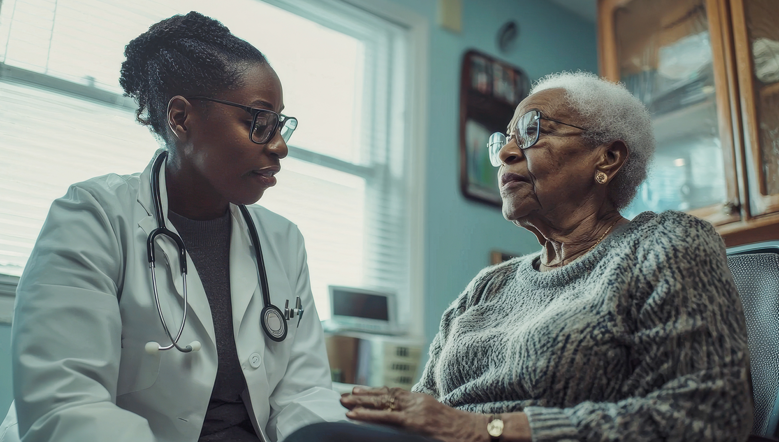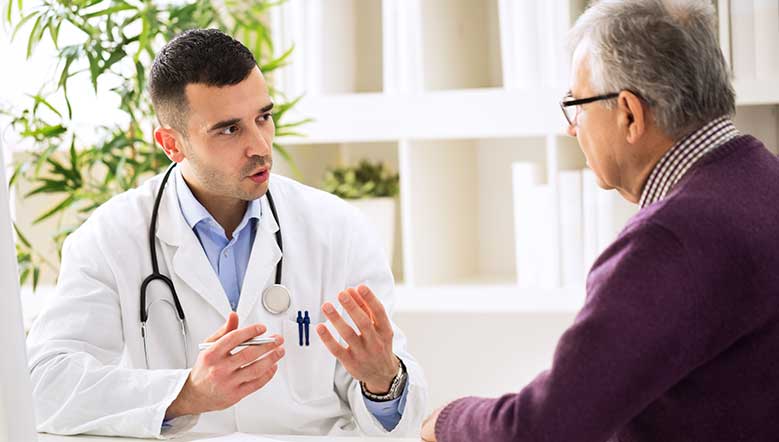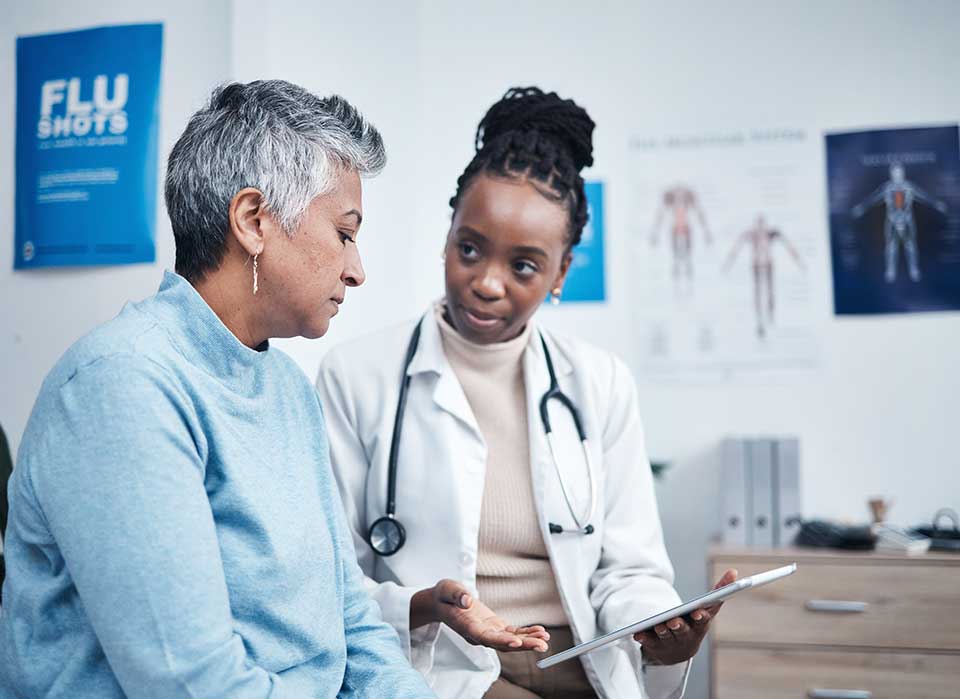How It Works
Complete The Survey
A first step as you consider this study is to answer some brief, easy questions about your health to determine if you are eligible for the diagnostic test and the ALPHA3 clinical trial.
Schedule An Appointment
Connect With Us

Understanding Diffuse Large B-Cell Lymphoma (DLBCL) and Blood Cancers


What It Is?
B-cell lymphoma, a type of blood cancer, makes up about 85% of the non-Hodgkin lymphomas in the United States. These types of lymphomas start in white blood cells called B cells. In this kind of cancer, the abnormal B cells begin to multiply uncontrollably and form tumors, often in lymph nodes, which are part of the immune system. The disease can then spread to other organs like the spleen, bone marrow, and liver. Large B-cell lymphoma (LBCL) can come in several forms like diffuse large B-cell lymphoma (DLBCL), primary mediastinal B-cell lymphoma and high-grade B-cell lymphoma. More than half of people first diagnosed are 65 years of age or older.2.

How Is It Treated?
Treatment depends on the type of lymphoma you have, the extent of its spread within your body, as well as your age and overall health. For newly diagnosed patients, treatment options include chemotherapy, monoclonal antibodies, and radiation. Most patients with B-cell lymphoma will have significantly reduced or eliminated the amount of cancer in their body, known as remission, with first line treatment.
However, approximately 1 in 3 patients who achieve a remission after treatment will experience relapse, usually within the first year after treatment. If the disease comes back, treatment options include stem cell transplant, targeted therapies, and CAR T-cell therapy, among others.3. As the disease progresses, treatment options become more limited. Many turn to clinical trials and investigational therapies. Unfortunately, some patients who have relapsed will not be able to receive the most powerful treatments available, like CAR T-cell therapy, due to reasons such as not meeting eligibility criteria or not having access to available treatments.4. That is why our research focuses on using the MRD test to predict if the cancer will eventually come back, and attempts to minimize its chance of returning. The ALPHA3 clinical study is the first clinical trial to offer CAR T-cell therapy to patients who are MRD+ before their cancer comes back (and potentially progresses). Because cancer tends to be easier to treat when there is very little of it in the body, this strategy may be advantageous over waiting for the cancer to return.

What We Hope to Do


What It Is?

How Is It Treated?
However, approximately 1 in 3 patients who achieve a remission after treatment will experience relapse, usually within the first year after treatment. If the disease comes back, treatment options include stem cell transplant, targeted therapies, and CAR T-cell therapy, among others.3. As the disease progresses, treatment options become more limited. Many turn to clinical trials and investigational therapies. Unfortunately, some patients who have relapsed will not be able to receive the most powerful treatments available, like CAR T-cell therapy, due to reasons such as not meeting eligibility criteria or not having access to available treatments.4. That is why our research focuses on using the MRD test to predict if the cancer will eventually come back, and attempts to minimize its chance of returning. The ALPHA3 clinical study is the first clinical trial to offer CAR T-cell therapy to patients who are MRD+ before their cancer comes back (and potentially progresses). Because cancer tends to be easier to treat when there is very little of it in the body, this strategy may be advantageous over waiting for the cancer to return.

What We Hope To Do
The research team is focused on advancing CAR T-cell therapy beyond its current use, which is restricted to patients whose cancer has fully come back after standard treatment. Instead, the ALPHA3 study aims to deliver this technology earlier, specifically to those who have successfully finished treatment but are identified to be potentially at high risk for future relapse. The ALPHA3 study will explore whether early treatment of these patients can prevent a relapse from occurring. By using a highly specialized investigational MRD test, currently only available through the ALPHA3 study, we will identify who these people might be, and attempt to intervene before their cancer returns.
%
DLBCL, and similar types of lymphoma, is a treatable cancer and many patients will achieve remission after completing initial treatment. Unfortunately, approximately 1 in 3 will see their cancer return, usually within the first year.5.
Who Can Participate?
- Aged 18 or older
- Have a recent diagnosis of diffuse large B-cell lymphoma (DLBCL) or a similar type of non-Hodgkin lymphoma as confirmed by your doctor
- You are scheduled to begin or are currently undergoing standard treatment with chemotherapy (or have recently finished treatment within the last approximately one month)
How Does This Screening Test Work?

The MRD test is a simple blood test designed to detect small amounts of cancer that remain in your body after treatment, at levels so low they can’t be detected by standard scans. Evidence of these trace levels is known as minimal residual disease (MRD), and testing positive (MRD+) may be an early indicator that you are at risk of having your cancer come back in the future, called relapse. If your MRD test is negative (MRD-), it means that no residual cancer is found, and research indicates that your cancer is unlikely to return. Knowing your MRD status, whether positive (+) or negative (-), may help patients ease the anxiety of the unknown. Those who test MRD+ may then be eligible to join the main portion of the ALPHA3 clinical trial, in which an investigational CAR T-cell therapy may be proactively administered as a one-time infusion to help eliminate the remaining cancer cells in the body, and potentially prevent the cancer from coming back.
Learn more about our participation criteria to see if you may be a good fit for the MRD screening and ALPHA3 study.
Frequently Asked Questions
What Are the Symptoms of Large B-cell Lymphoma (LBCL)?
Signs may include:6.
- Swollen lymph nodes or abdominal swelling and discomfort
- Night sweats
- Significant unintended weight loss
- Unexplained and persistent fever
- Persistent severe fatigue
6. Source: https://my.clevelandclinic.org/health/diseases/22030-b-cell-lymphoma
What Will Happen During the Clinical Trial?
Are There Any Costs to Participate In This Study?
Still Have Questions?
Still have questions? Contact us anytime via email.
